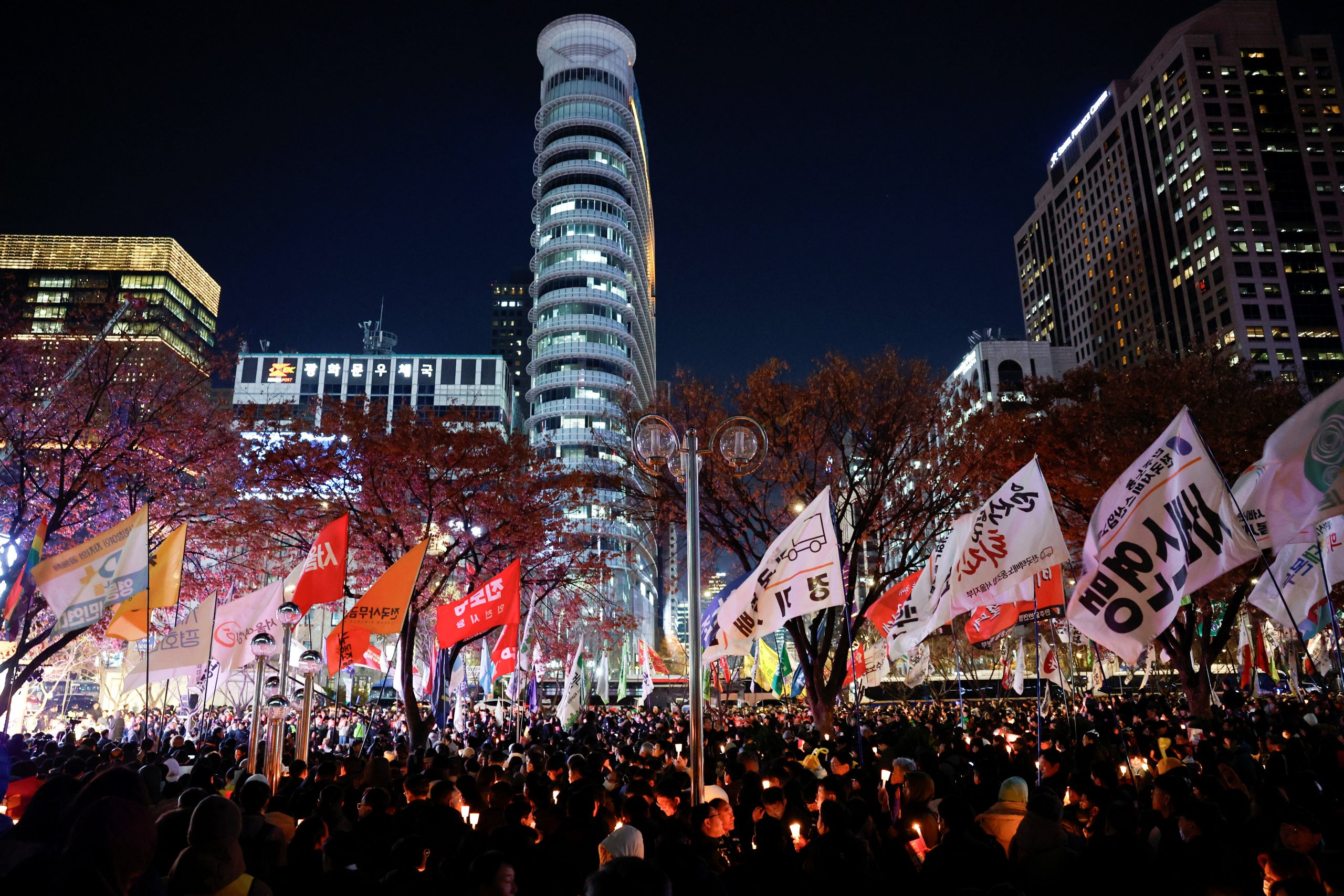
A deepening crisis has engulfed South Korea after President Yoon Suk-yeol’s surprise declaration of martial law ignited widespread outrage and protests across the nation.
The president’s move, announced on live television, was swiftly met with fierce resistance from lawmakers, who voted to revoke the decree. The opposition has slammed the decision as an attempt to consolidate power and undermine democracy.
Thousands of protesters have taken to the streets, demanding an end to martial law and calling for President Yoon’s resignation. The demonstrations have turned violent, with clashes between protesters and security forces reported.
The international community has expressed concern over the developments, with the US and other nations urging calm and restraint.
The crisis has raised alarms about the potential erosion of democracy in South Korea, a nation that has struggled with authoritarianism in the past.
As the situation continues to unfold, President Yoon’s presidency hangs in the balance. The opposition has vowed to pursue impeachment proceedings if the president does not resign.
The nation remains on high alert, with the future of South Korea’s democracy hanging precariously in the balance.
As I reflect on this crisis, I am reminded that the true test of a democracy lies not in its ability to impose order, but in its capacity to tolerate dissent and protect the rights of its citizens.
The world watches with bated breath as South Korea navigates this critical juncture in its history.

